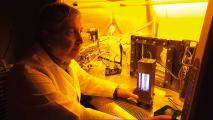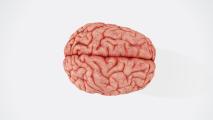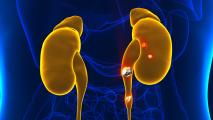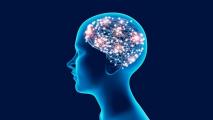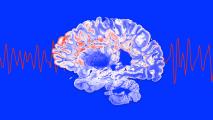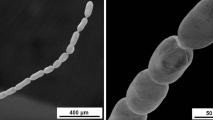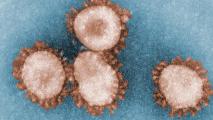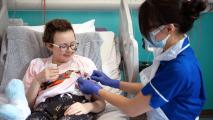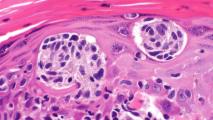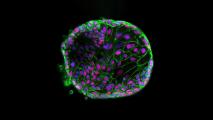
Biotech
Human history has been all but defined by death and disease, plague and pandemic. Advancements in 20th century medicine changed all of that. Now advancements in 21st century medicine promise to go even further. Could we bring about an end to disease? Reverse aging? Give hearing to the deaf and sight to the blind? The answer may be yes. And soon.
More
Seven science and tech breakthroughs you may have missed this year
A roundup of major science and tech achievements that flew under the radar in 2022, including new vaccines, advanced solar cells, and more.
How to use the brain’s own immune cells to stave off Alzheimer’s
Research suggests that microglia play a key role in preventing neurodegenerative diseases by helping to remove toxic waste.
Engineered bacteria may one day prevent kidney stones
In a small proof-of-concept study, an engineered E. coli was able to reduce levels of a kidney stone-causing chemical.
Harvard and Kraft Heinz are trying to make sugar healthier
Instead of replacing sugar, Wyss scientists had an idea: what if they change sugar to make it healthier?
Neuroscientists recommend more carbs and less coffee to combat seasonal depression
Taking small steps to help your circadian rhythm adjust to winter could mean happier times during what are literally the darkest days.
Researchers have developed a way to “decode” depression
Baylor College of Medicine researchers have developed an electrode-based “mood decoder” capable of mapping brain activity to mood.
MIT is testing light and sound to combat Alzheimer’s
MIT researchers are developing a therapy that uses 40-Hz light and sound to alter Alzheimer’s patients’ gamma waves.
Mega bacteria that can be seen with naked eye shakes up the field of microbiology
A newly discovered species of bacteria is so large that it can be seen with the naked eye. It also contains a DNA-containing nucleus.
Just a few short bursts of physical activity each day might yield huge health benefits
Researchers tracked 25,241 non-exercisers wearing accelerometers to find out of brief bursts of activity lowered their risk of dying.
AI-based theory explains your weird dreams
Researchers suggest that dreaming helps us generalize our experiences so that we can adapt to new circumstances.
How exercise changes your brain biology and protects your mental health
A psychiatrist and neuroscientist began to think of prescribing exercise as telling patients to take their “exercise pills.”
Stem cell breakthrough could save the northern white rhino
To save the northern white rhino species from extinction, researchers are turning stored rhino tissue samples into sperm and egg cells.
Armadillo experiment suggests that we can regenerate human livers with leprosy
M. leprae-infected armadillos develop enlarged, healthy livers with gene expression patterns similar to human fetal livers.
New “future-proof” drug can fight COVID-19 and the common cold
Researchers have identified a compound capable of stopping multiple coronaviruses in cell and tissue models.
First-of-its-kind therapy sends girl’s incurable cancer into remission
A first-of-its-kind CAR T-cell therapy sent a UK girl’s blood cancer into remission when all other treatments failed.
“Personalized curriculums” could get kids to care about school again
Personalized learning has to potential to prepare learners who are self-regulating and self-motivated for life beyond school.
Moderna’s mRNA cancer vaccine reduces risk of recurrence or death by 44%
Moderna’s new mRNA cancer vaccine reduced melanoma patients’ risk of recurrence or death by 44% compared to a standard treatment alone.
Anxiety treatment in early childhood can lower long-term mental health risks
Some anxiety is normal and, in fact, necessary and helpful. But what happens when it interferes with a child’s daily functioning?
Cheap liver drug can prevent COVID-19
A cheap, readily available drug used to treat liver disease could also prevent COVID-19 infections — regardless of the variant.
A new class of antidepressant works in 2 hours
Most types of antidepressants work by increasing neurotransmitter levels throughout the brain, which take weeks. A new drug takes hours.
Get inspired with the most innovative stories shaping the world around us.













